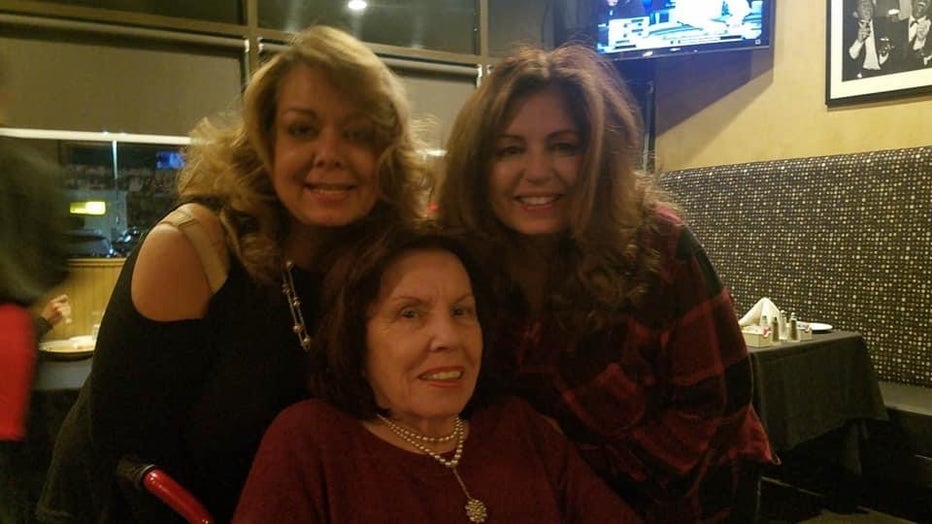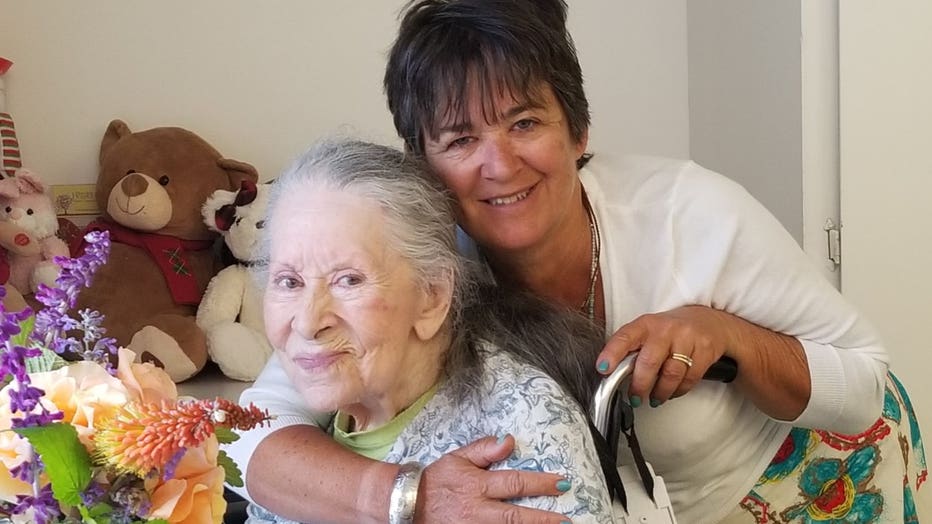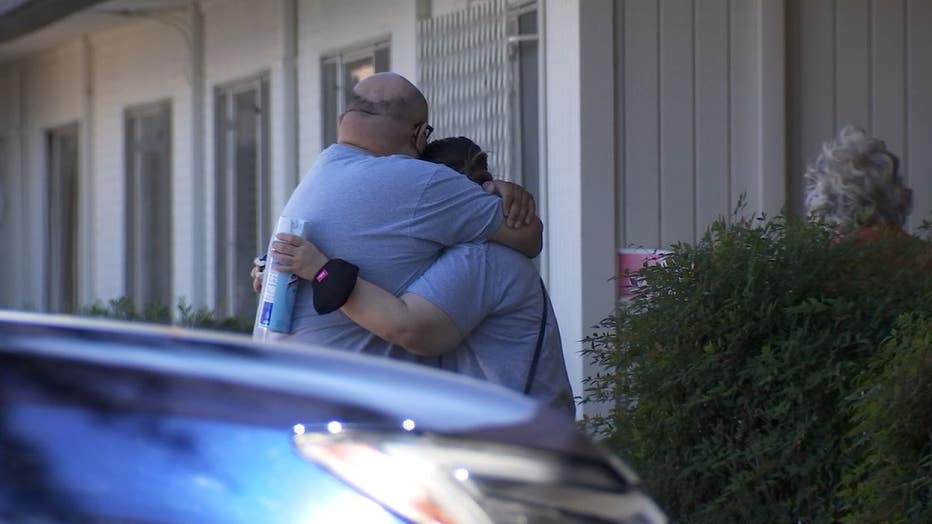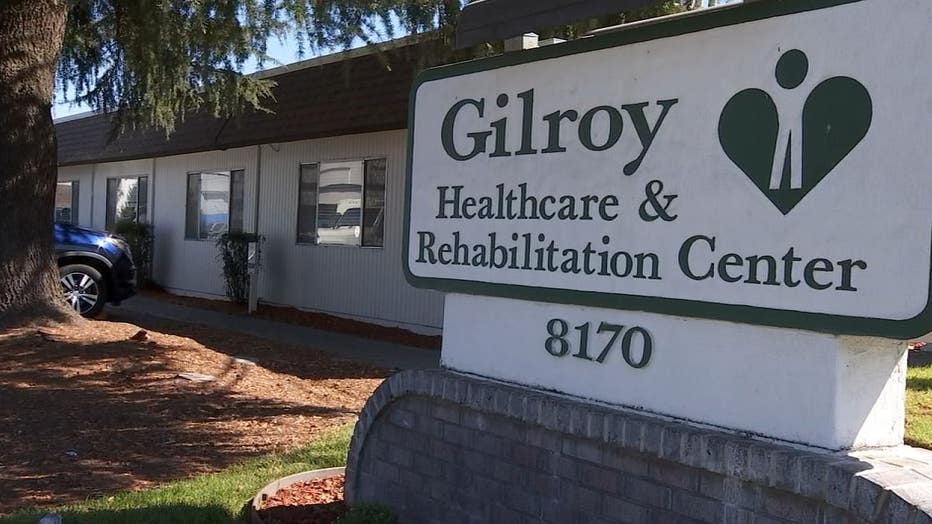COVID-19 patients moved to nursing home, 12 resident deaths reported
GILROY, Calif. - A dozen residents have died and at least 75 have become infected at a Gilroy nursing home, following the transfer of hospital patients sick with the coronavirus.
A separate, isolated section of the Gilroy Healthcare and Rehabilitation Center opened its doors in August as a COVID-19 recovery unit. Since then, nursing home managers said 32 patients have been admitted, cared for, and recovered.
But that also invited the virus into the main skilled nursing facility, which has led to a massive outbreak.
“It’s insane,” Tammy Abreu-Butron, whose mother lives at the facility said. “It’s akin to having a match thrown into a vat of gasoline.”
Her mom, Audrey Abreu, will turn 87 next month and learned more than a week ago she tested positive.

Audrey Abreu will turn 87 next month and learned she tested positive for COVID-19.
The nursing home has 132 beds but has reported 75 cases of COVID-19 among residents, which is more than half.
Daisy Matus had just celebrated her 94th birthday before the first resident tested positive a couple months ago. In the weeks to follow, records show positive cases exploded by the dozens, including Matus.
“I was trying to do whatever I could to get her out of there,” her niece Debbie Timms said. “There wasn’t enough time. She died a week later.”

Daisy Matus, 94, passed away after contracting the coronavirus at Gilroy Healthcare and Rehabilitation Center.
Matus is one of 12 confirmed resident deaths at the facility. Other families were seen this week visiting a final time to collect their loved ones’ belongings.

“My mother just passed away 30 minutes ago,” Patrick Rodriguez said. “Being in this facility was not good.”
The nursing home is owned by Covenant Care and would only provide KTVU with limited details, declining to be interviewed.
Records show, Gilroy Healthcare and Rehabilitation Center was cited and fined $1,000 in August for failing to report cases of COVID-19 and potential outbreaks three separate times including June, July and August, potentially compromising residents’ health and safety.

Covenant Care said it “experienced a miscommunication related to timeframe required” and has since corrected the situation by posting updated information on its website.
“No facility wants to reveal that information because it hurts business,” said attorney Mike Dark with nonprofit California Advocates for Nursing Home Reform. “What we have instead of strong rules is kind of a wild west.”
The California Department of Public Health has guidance and regulations, however, staffing, personal protective equipment, and infection control can be challenging for facilities.
The state excused the Gilroy nursing home from having to comply with minimal staffing requirements, documents show.
Covenant Care reports at least 54 health care workers have become sick with the virus. The company told KTVU in an email that it’s keeping residents, their families, the staff and the public informed.
But some families said they have been left in the dark.
“I had no idea,” Genevieve Corbin said. “Every single person in there has a human right for their family to be told exactly what’s going on.”
Corbin fears for her husband’s health since he already suffers from a debilitating disease. She said families like hers were given no choice and no communication surrounding COVID-positive patients being admitted at the facility.
In August, the California Hospital Association wrote a letter to the state pushing for patients recovering from COVID-19 to be released to nursing homes to help free up bed space and meet the needs of communities.
Additionally, state guidelines urge skilled nursing facilities to prepare to receive patients sick with the coronavirus.
The state and Santa Clara Health Department both declined to be interviewed. Any information provided consisted of guidelines, procedures or current conditions inside nursing homes. There has been no clarity as to why without a hospital surge, COVID-19 patients would be transferred to recover at a nursing home.
“Hospitals have strong economic incentives to use those beds for elective surgeries which can make them a lot more money,” Dark said. “So business interests are making a lot of the public health decisions.”
Many of the victims’ families haven’t been able to see their loved ones since early March. And for those living their last years of life at the nursing home, the sick hospital patients could ultimately become their death sentence.
“My biggest fear is that I’ll lose her and I won’t be able to hold her and tell her how much I love her,” Abreu-Butron said. “And to not be able to talk to her is so, so hard.”
Brooks Jarosz is an investigative reporter for KTVU. Email him at brooks.jarosz@foxtv.com and follow him on Facebook and Twitter: @BrooksKTVU

